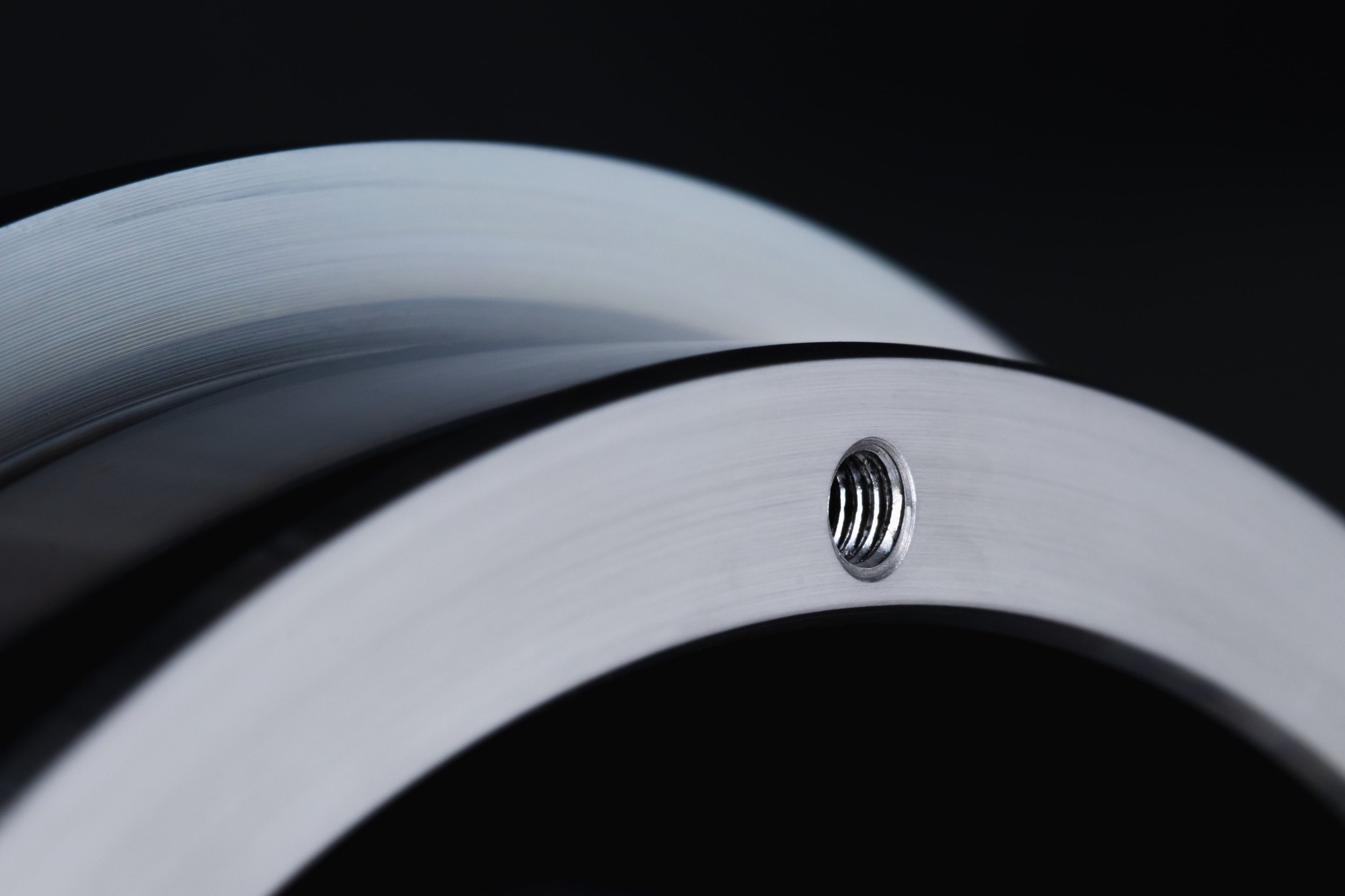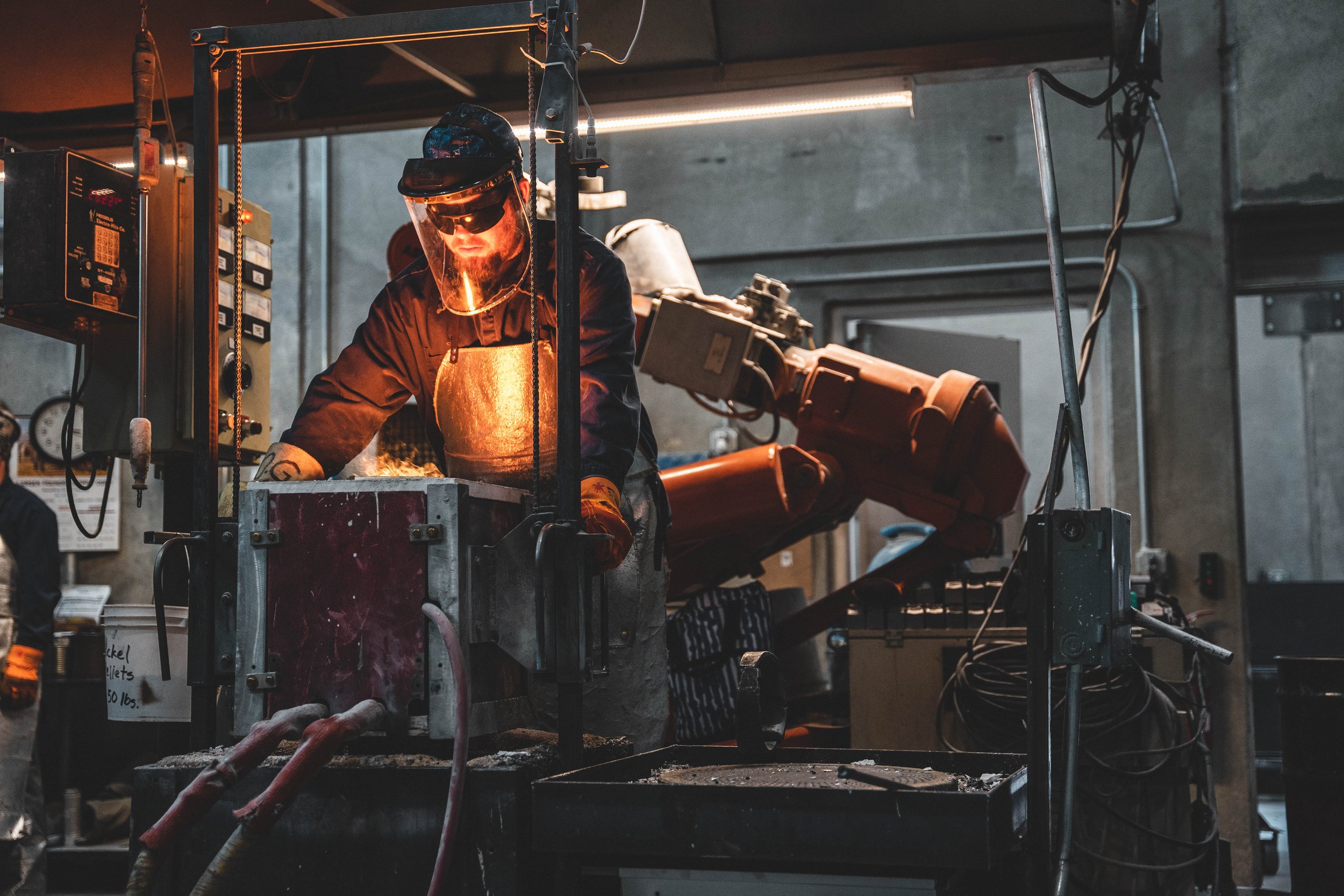Basics: Aluminum Castings
Aluminum Castings are a popular choice in the outdoor industry because of their weight to strength ratio.
What Are Aluminum Castings Used For?
Aluminum castings are revered for their lightweight and durable nature and have become ubiquitous in manufacturing. From aerospace to automotive and beyond, these precision-engineered components offer tons of applications.
Here are just a few examples:
1. Aerospace Aluminum:
Aluminum castings play a pivotal role in aerospace engineering. Their high strength-to-weight ratio ensures structural integrity while keeping overall weight in check. Components like aircraft engine parts and structural elements benefit from the resilience and corrosion resistance of aluminum castings.
2. Automotive Applications:
In the automotive industry, they allow for crafting lightweight components that enhance fuel efficiency without compromising on strength. Engine blocks, transmission housings, and suspension components exemplify the crucial role aluminum plays in modern automotive design.
3. Marine Industry:
The boating and marine industries leverage aluminum to create durable and corrosion-resistant components. From hull fittings to engine components, the marine sector relies on its versatility to withstand the harsh conditions of saltwater environments.
4. Power Generation:
Aluminum castings are employed for critical components in turbines, generators, and transmission equipment. Their excellent thermal conductivity and resistance to corrosion make them ideal for withstanding the demanding conditions of power generation.
5. Consumer Electronics:
Aluminum is frequently used in consumer electronics, from sleek laptop casings to smartphone frames on Android or Apple devices. Its use enhances both form and function in modern electronic devices.
6. Outdoor & Recreation:
Used by ultralightweight explorers and weekend warrior car campers alike, outdoor brands frequently utilize aluminum castings. Found in backpacking gear, outdoor shelters, camp kitchens, and more - cast aluminum is particularly beneficial in creating super strong components, just mere ounces in weight. It also offers the bonus of recyclability, making it a mainstay for the eco-minded outdoor industry.
7. Medical Grade Aluminum:
Aluminum castings find application in manufacturing critical medical equipment such as imaging devices, diagnostic instruments, and portable medical devices. The exceptional strength-to-weight ratio of aluminum ensures the development of durable, yet easily transportable, medical tools. Moreover, its corrosion resistance makes it ideal for maintaining hygienic conditions in the medical setting.
The diverse uses of aluminum castings showcase its strengths and versatility across various industries. With essentially limitless usage scenarios, aluminum will continue to play a central role in the future of engineering and design.
Pros & Cons
Advantages & Disadvantages of Aluminum Castings
Aluminum castings boast a range of benefits, from lightweight durability to corrosion resistance. However, like any material, aluminum has its own limitations, strengths, and other things to consider. Below, we’ll explore just a few of the advantages and disadvantages of its use. If you’d like to learn more or have questions, contact our team today!
Pros of Aluminum Castings
Lightweight Durability:
Perhaps its most well-known strength, aluminum castings offer exceptional strength while being remarkably lightweight, making them ideal for applications where weight reduction is crucial, such as in the automotive, outdoor, and aerospace industries.Corrosion Resistance:
The natural corrosion resistance of aluminum makes it suitable for diverse environments, including marine and industrial settings, ensuring longevity and minimal maintenance.Precision and Complex Designs:
The malleability of aluminum allows for intricate and precise casting designs with specifications at fractions of an inch. It affords engineers and product designers free reign to create components with purpose-built tolerances in nearly any industry.High Thermal Conductivity:
Aluminum's excellent thermal conductivity makes it an excellent choice for components in applications like power generation, ensuring efficient heat dissipation and optimal performance.Recyclability and Sustainability:
Aluminum is fully recyclable without compromising its other properties, aligning with the need for sustainable manufacturing practices and a brand’s environmental concerns.
Cons of Aluminum Castings
Limited Wear Resistance:
Aluminum castings may exhibit lower wear resistance compared to some alternative materials, affecting their suitability for heavy-duty or abrasive environments.High Initial Tooling Cost:
The initial cost of aluminum casting molds and equipment can be quite costly. This can make it prohibitively expensive for smaller-scale production needs.Limited Strength in Certain Applications:
In extremely high-stress applications, aluminum castings may not offer the same level of strength as other alloys, potentially limiting their use in specific heavy-duty scenarios.Middle Tier Heat Resistance:
While its lower melting point facilitates casting processes, it may limit the use of aluminum castings in high-temperature applications when compared to other materials or superalloys.
Sustainability & Recyclability of Aluminum Castings
As the world shifts towards sustainable practices, aluminum castings are gaining prominence and popularity due to their recyclability. The eco-friendly nature of aluminum aligns with the growing demand for environmentally responsible manufacturing processes.
Fast facts:
Aluminum is one of the most recycled materials on earth, with nearly 30M tons recycled annually (as of 2023). (1.)
It is estimated that 75% of aluminum ever produced has been recycled. (2.)
The energy required to recycle aluminum is significantly lower than that needed for primary production, contributing to reduced greenhouse gas emissions.
When coupled with its high strength-to-weight ratio and corrosion resistance, aluminum is sure to be a popular casting choice for years to come. Its utilization in manufacturing not only unlocks engineering advantages for purpose-built products but also offers industries a greener alternative without compromising the integrity and performance of their final product.
Does The IPC Foundry Group Offer Aluminum Castings?
Utilizing our international partners, we offer several exotic alloys for investment casting, including aluminum and titanium.
If you are interested in casting with these materials or want to get started with our vast selection of ferrous and non-ferrous metals, contact our team today.
Disclaimer:The content provided in this blog is intended for informational purposes only. This blog does not offer manufacturing or casting advice, and readers are encouraged to contact our dedicated team for more detailed quotes, personalized information, and expert assistance tailored to their unique needs. Sources:
1) “Aluminium Recycling Factsheet - International Aluminium Institute.” International Aluminium Institute - Through the IAI, the aluminium industry aims to promote a wider understanding of its activities and demonstrate both its responsibility in producing the metal and the potential benefits to be realised through their use in sustainable applications and through recycling., November 22, 2021. https://international-aluminium.org/resource/aluminium-recycling-fact-sheet/.
2) Amazing aluminum facts: Infinitely recyclable and abundant. Accessed November 5, 2023. https://turbofuture.com/industrial/Aluminums-Amazing-Facts-Infinitely-Recyclable-Abundant-in-the-Earths-Crust.












